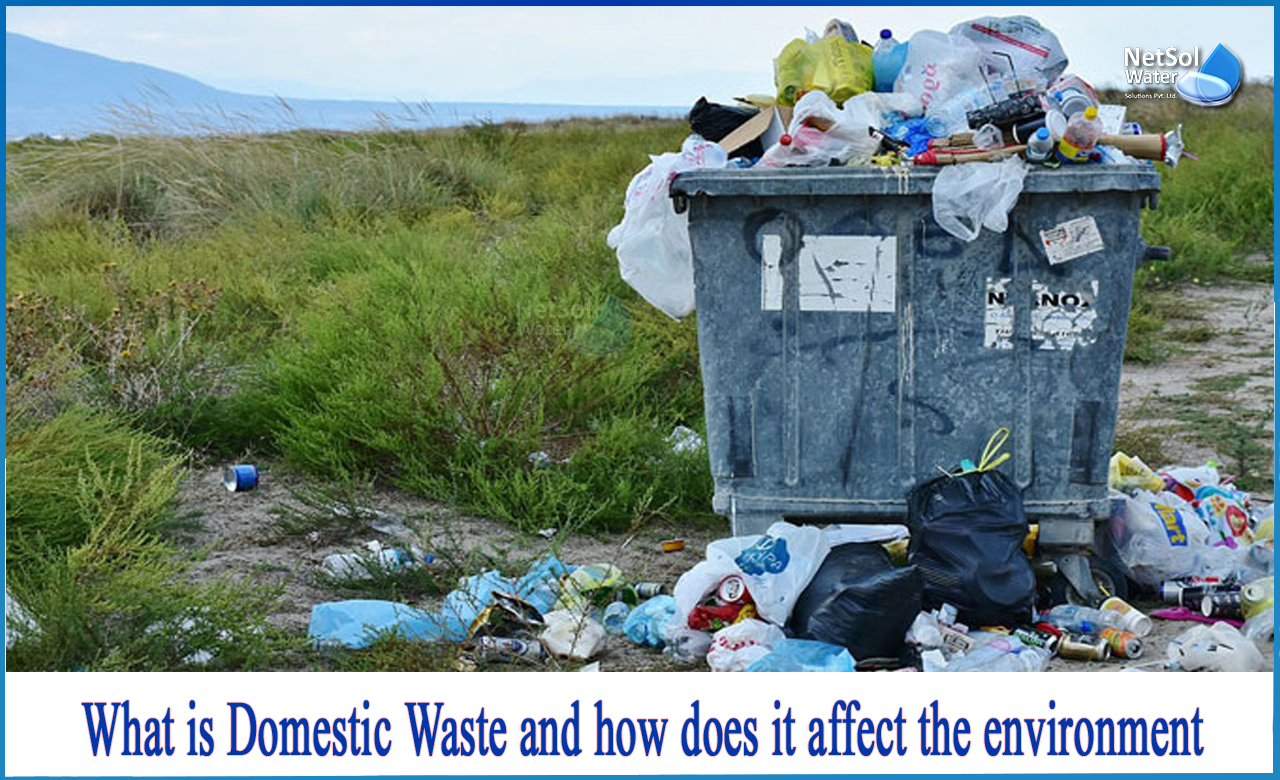What is Domestic Waste and how does it affect the environment?
The waste is produced by the ordinary day-to-day use of a domestic premise. It is either taken from the premises by or on behalf of the occupier who generated the waste or collected by or on behalf of a local government as part of a waste collection and disposal system. It is any waste generated in the residential house.
The majority of this waste is collected on a regular basis by local authorities' waste teams, while additional residential waste can be collected through one-time waste collections. Larger or additional residential waste can also be disposed of at a local recycling center.
Environmental Impacts of Domestic Waste
The problem of domestic waste is gaining popularity as large amounts of waste are left uncollected beside highways, streets, dustbins and on the ground, posing a threat to the environment and jeopardizing public health.
This waste is produced as a result of home activities such as cleaning, cooking, fixing empty containers, packing and the extensive usage of plastic carry bags. These wastes are frequently combined with biological waste from hospitals and clinics. At the household level, there is no mechanism for segregating organic, inorganic, and recyclable waste.Door-to-door collecting is uncommon.
The inappropriate treatment and management of domestic waste from houses has a negative impact on the general population and deteriorates the environment.
Human health impact
Municipal employees are the persons who are most impacted by the occupational risk (hazard) of waste processing. They suffer from illnesses such as eye difficulties, respiratory problems, gastric problems and skin problems. People who go around collecting abandoned items for resale suffer from a variety of health issues, including respiratory difficulties from breathing particles, infection from direct contact with contaminated objects, which causes headache, diarrhoea, fever, cough and cold.
Adverse effects on animals
The rising problem of insufficient solid waste management collection, as well as incorrect disposal procedures, causes many diseases and even death in animals, particularly cows, birds and stray dogs which wander and dig among the waste for food. These wastes have various properties and contain harmful substances. Many times, animals such as cows and buffalos ingest plastics together with their food, resulting in the death of the animals. The consumption of this food has an impact on the quality and quantity of animal milk products.
Waterbody contamination
Domestic waste pollutes the environment due to inefficient management and a lack of disposal techniques. It has an impact on the bodies of water.It also alters the physical, chemical and biological aspects of bodies of water. Uncollected waste is dispersed throughout the environment, reaching water bodies via runoff and percolating into subterranean water. The toxins in the waste poison the water. It also renders soil infertile and reduces agricultural production.
Pollution of the Land
It is a major reasonfor pollution in the environment. The land is poisoned by waste put on it, rendering the soil unproductive. Contaminated water bodies affect aquatic life, which reaches humans via the food chain, and organic chemicals. Drain obstructions occur as a result of abandoned plastic carry bags and uncollected debris, resulting in stagnant water that serves as a breeding ground for mosquitoes and insects.
Conclusion
Domestic waste management is a major issue in India. The majority of the problems with domestic waste management and environmental sustainability continue but Indian Govt. is taking major steps to manage domestic waste through eco-friendly measures.
Contact Netsol Water expert advisors to learn more about waste management methods and how your firm can go greener! To stay up to date on the latest waste management strategies, call us at +91-9650608473 or send an email to enquiry@netsolwater.com.



